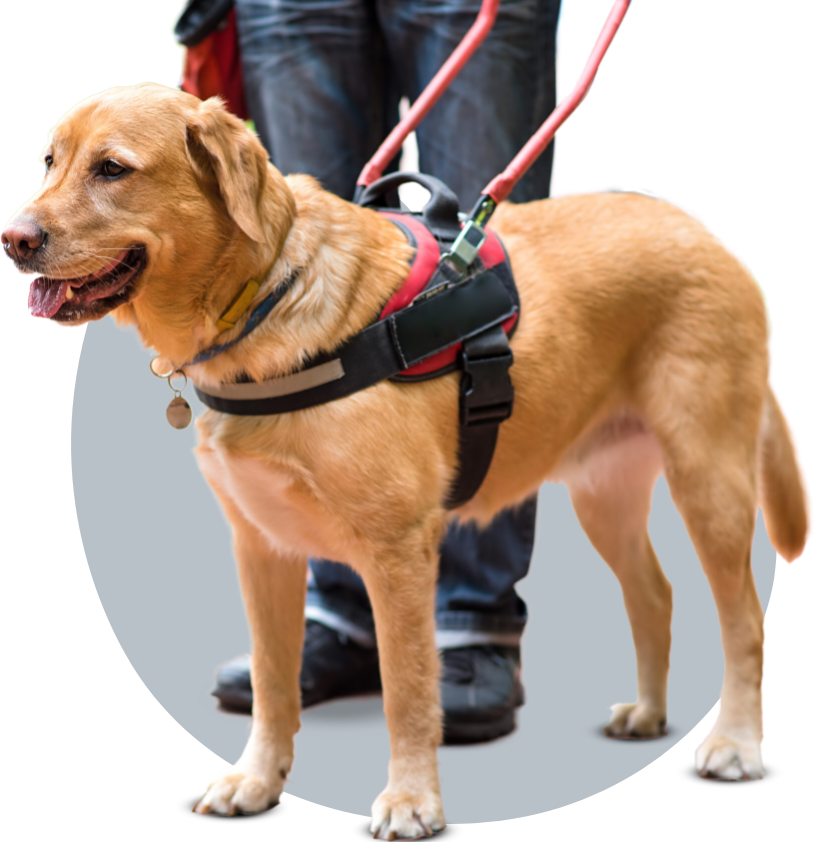Emotional Support Animal Laws: All You Need to Know

Many people rely on animals for companionship and comfort. They tend to our emotional needs and ask little in return other than some attention, a walk in the park and a bowl of food. To people disabled by mental, psychological or emotional disorders, their animals are more than pets but an integral part of their medical care.
An emotional support animal helps people with mental or emotional disabilities to function with a degree of normalcy. To a person susceptible to panic attacks, anxiety, or other behaviors related to their mental or emotional condition, having the animal around can be a calming presence.
That could mean taking a cat with them for a medical visit, cradling a pig on a passenger air flight, or holding a lizard in a public place. Not every place accessible to the public allows emotional support animals, although many are. Even if you’ve obtained an emotional support animal certification, it helps to be familiar with laws that affect them and your ownership of them.
Legal Challenges
Owners of emotional support animals (ESAs) typically confront resistance from property managers of apartments with no-pet policies or those that charge a substantial fee for having a pet. ESA owners also encounter resistance from managers of public access buildings like theaters and restaurants. These facilities restrict animal access to specially trained service animals like dogs that assist the blind. Emotional support animals are not considered service animals by some companies, so owners of ESAs may also run into resistance from airlines when trying to board with them.
Not every building with public access is required to accept emotional support animals. However, federal law does protect owners diagnosed with emotional, psychological or mental disabilities who want to take their support animals on passenger flights. The owners also have legal protections when it comes to leasing a place to live.
Housing
The Fair Housing Amendments Act of 1988 ensures individuals with disabilities who rely on emotional support animals have access to housing – even to properties that restrict pets. Property owners are required under federal law to make “reasonable accommodations” for emotional support animals. They cannot charge an advance deposit or fee for the ESAs but may recover costs from damage the animal causes to the property. Property owners may require individuals with ESAs to present documentation of their disability from the licensed mental health professional treating the individual.
Air Travel
Disabled individuals that want to travel with their emotional support animals sometimes encounter resistance from passenger air carriers. Individuals with ESAs are protected by the Air Carrier Access Act that prohibits discrimination of disabled people who travel by air. This 1990 law prohibits airlines from refusing transportation to or require advance notice from people who are disabled. Air carriers are required to accommodate individuals with emotional support animals.

Air carriers may also require disabled people with ESAs to supply documentation of their disability. In addition, individual airlines may have their own policies regarding emotional support animals accompanying their owners, so it is a good idea to check with their carrier prior to the trip.
Be Aware
The federal laws covering emotional support animals in travel and residential situations prevent discrimination to mentally or psychologically disabled individuals. Documentation from a licensed mental health professional of a mental or psychological condition or disorder is often requested. In some cases, disabled persons apply for emotional support animal certifications to ensure the animals are recognized as essential to the person’s therapy. If an emotional support animal is part of your therapeutic routine, it may be an option worth looking into. Visit our ESA certification page to purchase your own ESA certificate today!














































































